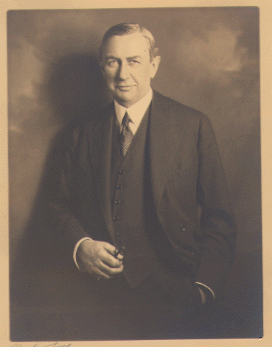Fall of the U.S.A. Concluded: The Big Money
If one uses a generous definition of “fall,” I have squeaked in under the wire, finishing the U.S.A. trilogy just prior to the winter solstice. I hope a few of you are still keeping up, or have at least read enough to find something worthwhile in these bitter, beautiful books.
The tragedy at the heart of U.S.A., the death that gives it its heartbreaking force, is the death of yearning. Remember the introductory passage that Conor cited? The one about a wandering young man with “no job, no woman, no house, no city” but for whom “one bed is not enough, one job is not enough, one life is not enough?” If you stopped reading, do me a favor and open The Big Money to its final pages and read the section titled “Vag.” See what’s become of that bold, searching hunger. The rest of you, keep reading.
In my first post on the books, I suggested a few topics that I’d keep in mind while I read. I’ll revisit them quickly to get myself caught up, then please carry on in the combox. Over the coming days, I’ll go back through the dogeared pages and see what, if anything, is worth bringing up.
The Law
When and where does the force of law manifest in the action of the novels and in the lives of the characters?
Easy enough: law and justice are distant, corrupt, and serve their paymasters.
Radicalization
We hear about it a lot today, mostly in embarrassingly glib terms. Muslim kids go into one end of a madrassa, and radicals pour out the other end. But what actually happens to make some people and not others receptive to radical solutions and life missions? I’ve always thought that notions of manhood had a lot to do with it, and Dos Passos appears to agree.
Interestingly, the most sympathetic and earnest radical is Mary French. While her male comrades are always shoring up one another’s commitment to the movement, Mary’s sincere humanitarianism keeps her going without any help from others.
What’s the Matter With Kansas?
To what extent do direct economic interests shape political orientation? Should they? The book presents solidarity as something ephemeral that takes constant energy input to avoid dissipation.
Like I mention above, the activists are always trying to instill solidarity among the oppressed, but getting their funds from wealthy liberals like Ada Cohn.
Scale
As we are discovering in the era of “food miles” and “too big to fail,” scale is an under-theorized element of political economy that carries a lot of intuitive weight. To what extent does Dos Passos present scale as a normative dimension?
Meh. Next question.
Media and the Information Economy
Reading this in hindsight, where, if anywhere, do we see hints of the emerging “knowledge economy?”
This is Ivy Ledbetter Lee, the so-called founder of modern public relations and prototype for J. Ward Moorehouse. Like Moorehouse, Lee worked for heavy industry as a publicist and for the Red Cross during World War I.
The Moorehouse character, like Lee, starts doing publicity for the steel industry, and becomes famous for his efforts at “harmonizing” public opinion with corporate and government policy. As he hits his stride, Moorehouse rhapsodizes over American industry, describing it as:
a highpower locomotive on a great express train charging through the night of old individualistic methods. … What does a steam engine require? Cooperation, coordination of the inventor’s brain, the promoter’s brain that made the development of these highpower products possible … Coordination of capital, the storedup energy of the race in the form of credit intelligently directed … labor, the prosperous contented American working man to whom the unprecedented possibilities of capital collected in great corporations had given the full dinnerpail, cheap motor transport, insurance, short working hours … a measure of comfort and prosperity unequaled before or since in the tragic procession of recorded history or in the known regions of the habitable globe.
By the end of The Big Money, Moorehouse is, quite literally, selling quack medicine and lobbying against its regulation.
The novels track this process of dissolution at both the individual scale and the national, starting with a hungry industrial fervor that seems almost pagan (the Pequod comes to mind a few times), and ending in a sanitized, bureaucratic, alienating, and superficial world of institutions beyond any individual control. “The storedup energy of the race” is squandered, leaving nothing to yearn for, but everything to want.











